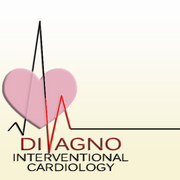What Are Your Chances of Getting Heart Disease?

Heart disease is one of the leading causes of death in the U.S., but the good news is, in most cases, this condition can be prevented. DiVagno Interventional Cardiology, MD PA in Rochelle Park, New Jersey, has established itself as the leading provider of customer-centered and compassionate cardiac care. Their experienced team of heart doctors says it's vital to know if you're at risk of developing heart disease so you can get the appropriate treatment and care.
-
High Cholesterol: High levels of bad cholesterol increase your chances of developing heart disease. Bad cholesterol can clog the arteries and cause a heart attack or stroke. Consult your doctor to keep your cholesterol levels in check. Consume foods that are rich in good cholesterol as they can help flush out bad cholesterol.
-
Obesity: Obese adults are susceptible to developing diabetes, high blood pressure, and high cholesterol. Developing a healthy lifestyle is a must to cut some extra pounds, so eat nutritious meals and exercise regularly. Exercising burns fat, promotes blood circulation, and keeps your heart healthy and strong.
-
 Smoking: Smoking hardens the arteries, allowing fats to build up. When this happens, the walls of the arteries become narrow, making you susceptible to chronic lung problems, heart disease, and stroke. Quit smoking to reduce the risk of developing these conditions. Maintaining a smoke-free home and engaging in physical activities can help you quit smoking.
Smoking: Smoking hardens the arteries, allowing fats to build up. When this happens, the walls of the arteries become narrow, making you susceptible to chronic lung problems, heart disease, and stroke. Quit smoking to reduce the risk of developing these conditions. Maintaining a smoke-free home and engaging in physical activities can help you quit smoking. -
High-BP & Blood Sugar: High blood pressure and high blood sugar are among the most common causes of heart disease among adults. If you have diabetes, your chances of developing heart disease increase by two to four times. A healthy diet and an active lifestyle can reduce high blood pressure and make diabetes more manageable.
About the Business


